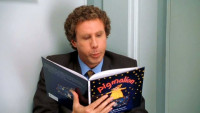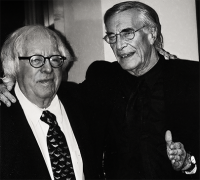
Even Without Book Bans, Publishing Has a YA Issue
themarysue.com – Sunday May 21, 2023

Young Adult (YA) literature has found itself under attack from an increase in book banning and censorship. Right-wing groups like Moms for Liberty have set their sights on YA literature, and have succeeded in removing countless titles from school districts and local libraries. Some of the most common targets are books that address topics like abuse, racism, and LGBTQIA issues. Right-wing groups raise outrage by wrongfully classifying YA books as “pornography” to make them inaccessible to readers of all ages. However, book banning is only part of the genre’s continued fight for survival.
Those who oppose YA literature are definitely part of the problem, but those who support it may also be unintentionally harming it. So many adults are reading, publicly reviewing, and commenting on YA literature that YA books are now tailored to adults instead of teens. There’s also the issue of adult books mislabeled as YA literature, and vice versa. The problem isn’t that kids can’t read or handle any content deemed “adult.” It’s that adults and young readers are two completely separate markets, and the needs and interests of each ought to be evaluated separately. Additionally, price hikes in books make YA literature inaccessible to their target audience.

The 'publishing less' conundrum
thebookseller.com – Thursday May 18, 2023

Yes, publishers are overstretched — but fewer books won’t really help.
Do we need to care for authors better, rethink staff workloads and pay more attention to each book? Yes. But the short answer to "can we publish less, but better?" is: not necessarily.
Most would agree we don’t want lists reduced, teams shrunk and only safe titles published. This wouldn’t be serving readers, writers, the industry or society. So what we need is a situation where authors are better communicated with, books are given more attention, and the changed nature of publishing roles is recognised.
As someone who has tried to do exactly that, from the luxury of a fresh start with a new company, it’s worth highlighting our aims and our realisations.

How to get published in a literary magazine: ‘Whatever excites you will excite us’
irishtimes.com – Sunday May 14, 2023

Gemma Tipton offers a beginner’s guide to taking up a new cultural pursuit
If there was an Olympics for philosophical musings, Ireland’s Chat Team would surely win gold. Some get their deep thoughts down on paper, but how do you take the next step and get it in print? Lisa McInerney is editor of the Stinging Fly.
Aren’t literary magazines for people who write stuff that’s hard to read?
Absolutely not. Danielle McLaughlin says she credits the Stinging Fly with enabling her to be a writer today, “something that would once have seemed as remote a possibility as becoming an astronaut”, while Anne Enright says, when people ask her how to break into publishing, she tells them “try there first”.

What Teaching Shakespeare Taught Me About Writing Horror
lithub.com – Monday May 8, 2023

Titus Andronicus May Be Bloody, but the Scottish Play and Othello Are Psychological Horror Perfection
A desolate moor, haunted by incomprehensible supernatural beings. Chains rattling in a dark castle, ghosts prowling the ramparts. A grisly corpse, hands chopped off and tongue sliced out. For any horror-lovers, whether the Gothic classics or the contemporary greats, these tropes will ring familiar.
They come, of course, from Shakespeare.
In fact, after more than a decade of teaching his work, I’ve come to see Shakespeare—at least when he’s writing tragedies—as primarily a horror writer. He might perhaps be the most significant influence in the entire English language to the Gothic, and consequently the modern, horror tradition.
On the surface, no play epitomizes this more than his first tragedy, the grisly Titus Andronicus. It is the Saw franchise of Elizabethan theatre, filled with as much shock and gore as Shakespeare could possibly have packed into a single play. As well as a full complement of stabbings, hangings, and beheadings, the audience is treated to Aaron being buried up to his neck until he starves to death, seeing Lavinia’s hands removed and tongue cut out, watching on as Alarbus’s arms and legs are cut off and he is thrown into a fire, and finally, Shakespeare delivers the coup-de-grace as Chiron and Demetrius are baked into a pie and then fed to their mother. Let it not be said that gore is a new thing in popular entertainment.

Jaime Green on Writing with Research
lithub.com – Saturday April 29, 2023

I realized early on that what I loved about writing nonfiction was the finding. Digging some marvel out of a dusty corner and giving it a good wipe-down, holding it up so the reader can see how it catches the light. Look at that!
The item is always in the light, not me. The thrill of the jackpot in research entranced me, as did the satisfaction of setting the artifact in the perfect frame of an essay. Instead of puzzle pieces with only one solution, the research was mosaic tiles, making a different picture if you placed them this way or that. I thought, for a while, that was my art.
But it’s a choice, of course, how visible a writer makes their research. Not the information found, but the act of finding. And not the credit and citation—that’s not a flexible requirement—but whether the sourcing lives in your prose instead of just the back of the book. You do get to decide.

I'm a poet. And I celebrate the days I write nothing
wbur.org – Friday April 28, 2023

During the 30 days of April, poetry, normally not-in-the-limelight, earns a hashtag: it’s #NationalPoetryMonth. It's as though Emily Dickinson has won a Publisher's Clearinghouse prize. There's a major uptick in poems studied, written, performed, and published as poetry becomes the focus of national educational organizations and local community arts counsels, heralded by U.S. Presidents and English language arts teachers alike.
I've been writing and publishing poetry since I was 15. It's usually a quiet gig. Come April, though, my day planner is flooded with readings, public appearances, online events, interviews and contests to establish or judge — and I'm only a state poet laureate. I can't imagine what U.S. Poet Laureate Ada Limon's calendar looks like for those four weeks. All this fanfare for a genre that won't be touched by most literary agents.
AI is no Shakespeare. Why ChatGPT, other tools are unlikely to take your writing job
eu.usatoday.com – Sunday April 16, 2023
“Shakespeare’s not such a great writer,” a fellow student said during an English class years ago. “His stuff is lazy! There’s one cliché after another.”
Certainly, the then-teen could be forgiven for thinking that the playwright William Shakespeare phoned it in, so to speak. His plays are peppered with phrases that are now clichés. “My own flesh and blood,” “cruel to be kind” and “method to my madness” are a few from “Hamlet” alone.
But those tidbits weren’t clichés before Shakespeare. They didn’t exist until everyone saw that his phrasing was so imaginative and poignant they couldn’t resist adopting them.
The distinction between turning a phrase and borrowing one is critical to gauging where generative AI is heading, and what threats and opportunities it may present for the future of human composition.

3 Simple Tips on Writing the First 5 Pages of Your Sci-Fi/Fantasy Novel
theportalist.com – Thursday April 13, 2023

If you’re a first-time author, the first five pages of your novel can make or break your publishing chances.
If you’ve decided to write a science fiction or fantasy novel, then I can really only offer you two words: good luck. The publishing landscape is not for the faint of heart, especially to new writers seeking to break into the industry. If you want to publish a book one day, you have to prepare yourself for rejection. Not everyone is going to fall in love with your story on the first draft–some may not get it on the final draft.
Don’t believe me? Check out this excerpt from an Amazon review: “Everything from its banal and totally meaningless plot to its incredibly idiotic and unimaginative characters miserably fail in masking one of the worst books of all time.”
The book in question was The Return of the King by J.R.R. Tolkien.
More than 60 years of genre-defining acclaim and a billion-dollar, Oscar-winning film franchise couldn’t convince one reader that Tolkien knew what he was doing.
How, then, are you supposed to prove your literary worth with just five pages? Because that’s all you get when pitching your book to agents: a five-page writing sample and an introductory query letter.

Children's author Paul Jennings reflects on childhood, success and his writing process
abc.net.au – Sunday April 9, 2023

A 13-word letter from a child was probably the most profound piece of writing ever to land in Paul Jennings' lap.
"All he said was: 'Dear Paul Jennings, how come you know what it's like to be me?'," the author says.
"Good grief, you know. That little boy could see himself in my story, which is exactly what I want."
Close to four decades and nine million book sales have transpired since Jennings began his career as a children's writer.

Ray Bradbury On Writing and Writers
splashmags.com – Friday April 7, 2023

The following radio interview with Ray Bradbury was recorded over 50 years ago when I was quite young and terribly naive, it was to promote the release of the movie Something Wicked This Way Comes. What Ray Bradbury spent much of the time talking about was how many in society tried to tell us what we should and shouldn’t read, think and what can and cannot be imagined. It was, I think, a counseling session as much as an interview, encouraging myself and others to follow their heart and go their own way. Revisiting this interview has helped me recover my stalled creative momentum and I hope it will serve that purpose for others who read this.
Ray gave me the best advice about writing. Write! Who cares what’s published or heard tell the stories you want to tell. In his book Zen In The Art of Writing he talks about writing as a panacea for those living in troubled times. “While our art cannot, as we wish it could save us from wars, privation, envy, greed, old age or death, it can revitalize us amidst it all.”
Get the free newsletter | Submit a news item or article | Get Writers' News for your website





